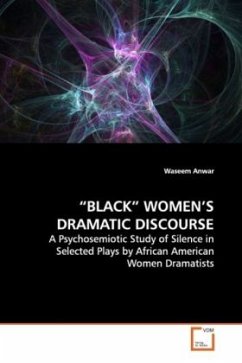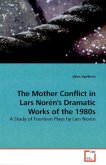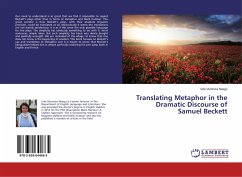This book encompasses a historical overview of the
role of silence and its semantic richness to
configure the speaking self of black women. The
African American women dramatists researched here
compress black womanhood into a well-composed subject
position. Highlighting their use of silence as a counterdiscourse; a means for self-inscription,
defense mechanism, or subversive and disruptive
power, the book researches the psychosemiotics of
silence to decipher the notion of the dominant
speaking subject. Major works of Bonner, Hansberry,
Shange, Kennedy, Parks, and McCauley are examined to
understand the necrophilia caused by the patriarchal
politics in American Society, while critical
approaches employed by literary theorists and black
feminists from the European, American, and African
American backgrounds are used to trace a commonality
of experience. Overall, the book helps the readers
recognize black women s voiceless-ness as a more
meaningful and powerful way to secure their silent
subjectivity. Interdisciplinary in spirit, it
facilitates professionals and researchers in the
fields of drama, theatre, literary criticism and
theory, linguistics, and even social sciences.
role of silence and its semantic richness to
configure the speaking self of black women. The
African American women dramatists researched here
compress black womanhood into a well-composed subject
position. Highlighting their use of silence as a counterdiscourse; a means for self-inscription,
defense mechanism, or subversive and disruptive
power, the book researches the psychosemiotics of
silence to decipher the notion of the dominant
speaking subject. Major works of Bonner, Hansberry,
Shange, Kennedy, Parks, and McCauley are examined to
understand the necrophilia caused by the patriarchal
politics in American Society, while critical
approaches employed by literary theorists and black
feminists from the European, American, and African
American backgrounds are used to trace a commonality
of experience. Overall, the book helps the readers
recognize black women s voiceless-ness as a more
meaningful and powerful way to secure their silent
subjectivity. Interdisciplinary in spirit, it
facilitates professionals and researchers in the
fields of drama, theatre, literary criticism and
theory, linguistics, and even social sciences.








